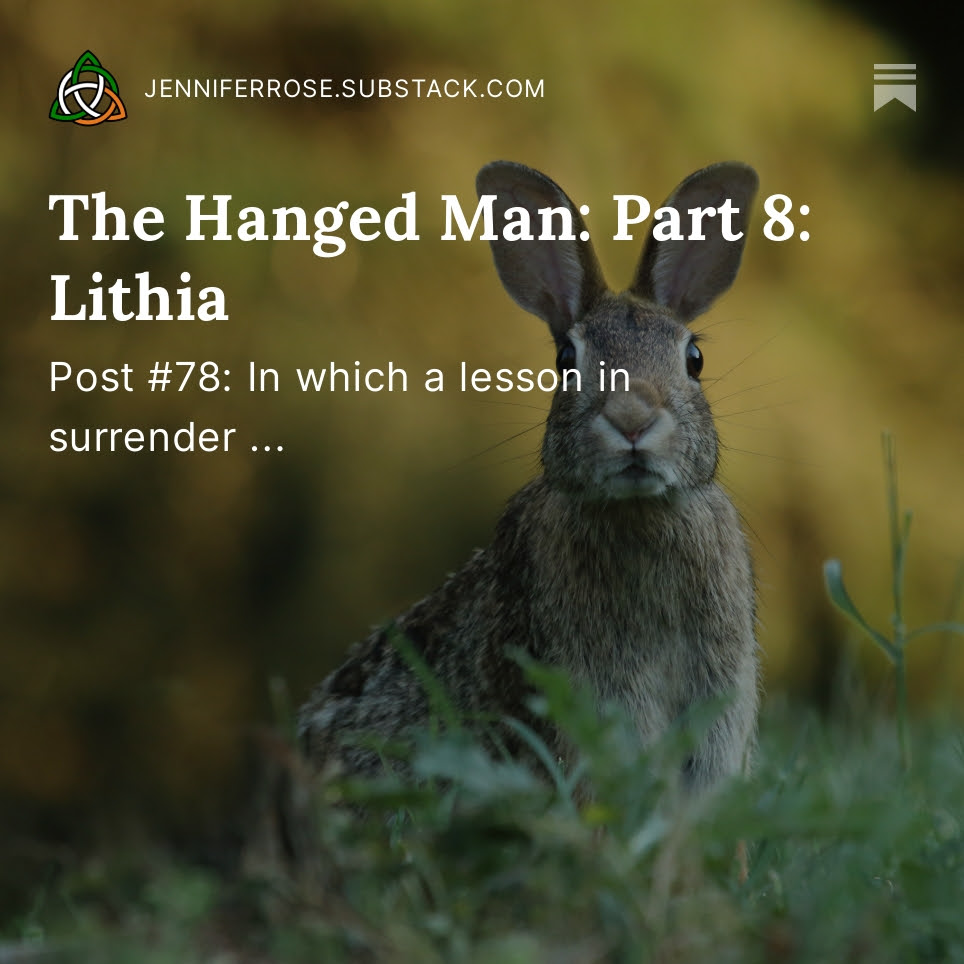by Jenny Rose | May 26, 2024 | Connection & Community, Emotional Intelligence
I’ve always said I hate politics. In hindsight, what I was really expressing was discomfort with divisiveness and conflict, lies and deceits and power games. Talking about politics feels like pinning Jello to the wall. People throw labels and jargon around. Terms are not defined and agreed upon. True intent is obfuscated. Actions and words don’t line up. Contempt and outrage rule.
The last eight years have been brutal in the political arena. I have an internal list of words that send me into immediate flight from conversations and interactions. If I can’t flee, for example if I’m at work, I put on a neutral face and withdraw, leaving a robot to carry on until the subject has changed to vacations, or family, or gardening, or even the same personal health stories I’ve heard from patients and patrons many times before. Anything but politics.

Photo by roya ann miller on Unsplash
Yet everything feels politically charged right now. Every aspect of our culture, our basic needs, our planet, our economics, our bodies and our minds, winds up in an increasingly bleak morass of hatred, violence, fear, isolation, and manufactured confusion.
Interestingly, in my own fictional work, I’ve been stuck for some time in writing about a small egalitarian community whose harmony is disrupted by a member who actively seeks more power. The de facto leader, a woman, doesn’t know how to combat this aggression because I don’t know how to combat it!
Last winter my partner talked with me about a video series he’d found on YouTube called What is Politics? Before he was finished talking I was shaking my head. I wanted nothing to do with it. The words and terms are meaningless. It’s all just hate. It’s impossible to talk sensibly about and I don’t want to know more than I know; I don’t want to wander around in a toxic wasteland during my free time. Besides, I want to read, not listen to and watch YouTube.
(Yes, I am a bit of a snob that way.)
My partner sent me a link anyway. He’s persistent like that. I was duly annoyed. For some reason, I didn’t delete the link. One day when nothing in particular was going on I clicked through and watched it.
Irritatingly, I was impressed. The presenter (I think his name is Daniel) is smart, by which I mean he’s incredibly knowledgeable, well read, well spoken, and he’s a synthesist. He understands complexity. He has a sense of humor. He was not hateful and he did not speak in jargon. He pushed no ideology. He defined every single term he used. In fact, the very first thing he did was define politics as “anything related to decision making in groups.”
That simple, clear definition hooked me. I saw at once that politics are everywhere because politics are everywhere. My perspective widened from our current shameful global and national politics to include home, school, work, and neighborhoods. When two or more people are together anytime, anywhere, politics are in play. My resistance dissolved. I wanted to learn more. I sensed I was on the edge of figuring out how to solve my creative fictional dilemma.
My partner sent all the links to the video series and I settled down to go through the videos, one at a time. I use a split screen, taking notes on one side and watching the video on the other.
Politics is about power, the power to make decisions. It’s ridiculously simple. Without understanding it, I’ve been writing about politics for eight years on this blog as I explore choice and personal power. Power is something we all need to understand and master; it’s the cornerstone of emotional intelligence and living effectively.
This series has been the most valuable piece of learning I’ve engaged with since I learned emotional intelligence, more than ten years ago. I understand now why I’ve never been able to get a handle on politics, and why I’ve been so repulsed by the whole subject. Subconsciously, I’ve recognized the language games and manipulations, and I won’t deal in language games and manipulations. I don’t trust ideology, including my own. I don’t trust “news.” I don’t trust all the “worbs,” Daniel’s term for meaningless language no one defines clearly and correctly. Just about the only thing I do trust is that following the money behind every ideology, whether it be food, climate, aspects of gender and sexuality, geopolitics, religion, or elections, invariably uncovers corruption and reveals the puppet masters.

Photo by Tim Gouw on Unsplash
And we are the puppets. Nicely divided along manufactured lines. Emotionally manipulated into defensiveness, distrust, hate, and fear so any kind of unity against the powerful elites who have a stranglehold on the vast majority of wealth and decision-making becomes increasingly improbable. The economic inequality most of us stagger under, the thing we all have in common, cannot be clearly seen because we’re captivated by a thousand tempting but ultimately meaningless ways to hate and fear one another.
That’s just the way the people at the top of the hierarchy want it. We’re good little “patriots,” incapable of unifying.
I don’t usually choose willful ignorance. It’s not a useful choice, but until now I hadn’t found a clear, concise, pragmatic way to become educated about political terminology and history. I’ve never before recommended a video series. I hope you will check out What is Politics.
Questions:
- What are your current reactions to the subject of politics?
- What aspect of politics do you find particularly troublesome or uncomfortable?
- Do you feel more or less connected to family, friends, neighbors, and community than you did ten years ago?
- Would you prefer to live in a political context of economic equality or economic hierarchy (our current state)?
Leave a comment below!
To read my fiction, serially published free every week, go here: 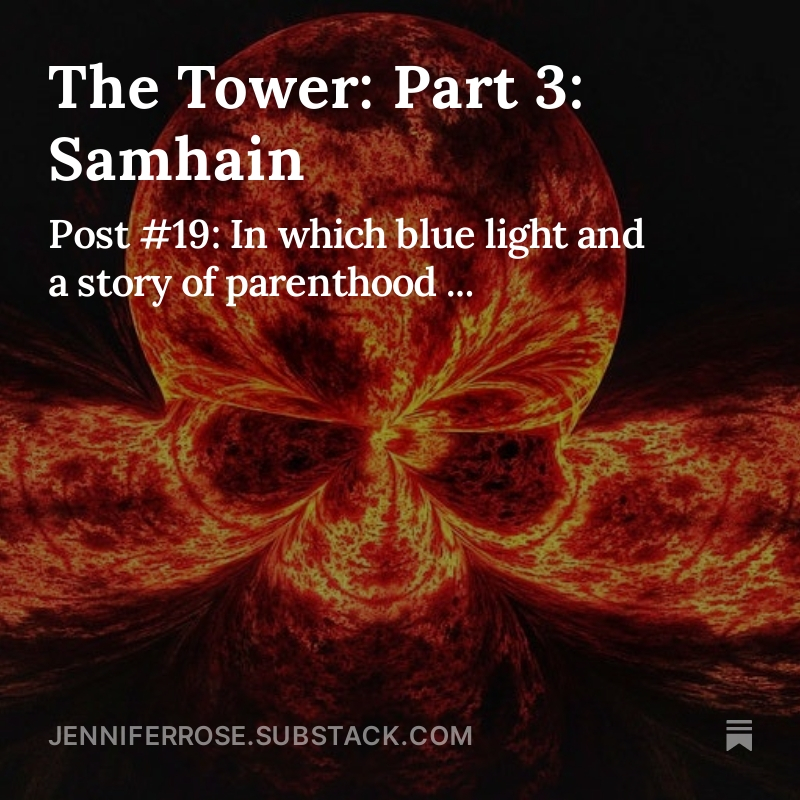
by Jenny Rose | May 11, 2024 | Connection & Community, Emotional Intelligence, Shadows
… and she met a bear. She froze, watching it watching her, seeing the long claws, the muzzle raised to sniff the air, the marvelous deep pelt. She thought about everything she’d ever heard about dealing with bears. She stood still, attempting to convey the energy of no-harm.
The bear let out a “whuff” of breath, turned, and shambled away.
THE END
Once upon a time a woman walked through the woods and met a man she did not know. He made no eye contact, said nothing, and walked on. The woman followed his lead and ignored him, continuing on her way in a direction well away from his. She was conscious of a new alertness, a slight acceleration in her pulse. Her peaceful walk, her gratitude and appreciation of the balm of nature, her healing solitude, now took on the aspect of carelessness and risk. She knew some would say she was asking for trouble to walk in the woods alone. Was her comfortable clothing provocative? Were her jeans too tight? Did they send a signal that she wanted sex? Where, exactly, was she? If she called for help, could she be found quickly? Was she sure what direction she was walking in? She didn’t want to catch up to the man, didn’t want him to think she was following him or trying to get his attention. She didn’t want to linger in case he’d doubled back and was behind her. How fast was too fast? How slow was too slow? What was the fastest way back to her car?
She stopped, hesitating, sheltering behind a thick tree. Maybe the man was harmless. Maybe he had come to be alone and quiet, too. Maybe he’d hardly noticed her. Maybe he was a good man like her brother, her friends.
Maybe he was parked near her car and would wait for her to come out of the woods …
TO BE CONTINUED
Once upon a time a woman walked through the woods and met a man she didn’t know. He made eye contact with her, smiled, said, “How are you?”
The woman made her face smooth and calm, but inside she shrank and adrenaline kicked through her. Should she smile? She’d been told not to smile at strange men, lest it be misread. Should she reply to his greeting? Should she walk on without acknowledging him, or would that make him mad? Or hurt his feelings? (Probably he was a perfectly nice, harmless man.) Did she have anything she could use as a weapon? She’d seen no other cars when she parked; was anyone within earshot?
Her thoughts raced. Her steps slowed while she considered what to do. She smiled slightly without meeting his eyes. She didn’t speak and didn’t stop. As she walked away, she listened for sounds of him behind her, but all she could hear was the hammering of her heart. She didn’t dare look over her shoulder in case he was behind her and took it as encouragement. She felt naked. Were her jeans too tight? She wanted to take off her jacket and tie it around her waist, but she didn’t want to do anything to make him think she was afraid of him. She forced herself not to run. She lengthened her stride, standing tall, trying to project assertiveness.
She began to circle widely, back to where she’d parked her car …
TO BE CONTINUED

Photo by freestocks.org on Unsplash
I’m not on TikTok (God forbid), but I’ve been hearing about a recent viral sensation around the question of whether, as a woman, we’d rather meet a bear in the woods or a strange man. The vast majority of women would much prefer to meet a bear. The question was posed to me with no context and I didn’t need any time to think about it. I’d rather meet a bear, of course. A bear isn’t going to rape me. Bears don’t carry guns, abduct women, or hurt women for pleasure. I’ve often had brief interactions with black bears, both here in Maine and in Colorado. I’m not food. Any food I’m carrying can be tossed aside. As long as I don’t inadvertently get between a mom and her cubs, I’m not a threat, not something that needs to be attacked. If I am attacked and mauled, I’d far rather be hurt that way, or even killed, than fall into the hands of a twisted man. Bears are predictable. They don’t stalk, torture, lie, manipulate, kidnap, use substance, or terrorize for the fun of it.
A man might do anything.
A bear would recognize me as a human being. A man might not.
I’m told there’s a lot of anger from men about this answer, to which women respond with, “Thanks for illustrating the point so well. See? That anger, that language, that defensiveness and denial are exactly why we’d rather meet a bear than a man.”
And around and around we go.
Interestingly, an article I found that talked about this said when a man was asked if he’d rather his daughter met a bear or a man while walking alone in the woods, he eventually chose a bear.
I think about these things more than I have in years. I think about them every day at work, where I interact with all kinds of people as a professional, and every day as I walk the few blocks to and from work. I’m angry about it, because I assumed by the time I was 60 this sort of thing would be behind me. I forget this kind of behavior and threat really has nothing to do with my age and attractiveness; merely being a female is enough. For some men.

Photo by Sam Burriss on Unsplash
There’s no point is saying “not all men” because everyone knows that. Of course not all men are a threat to women; that’s not the point. The point is all men might be a threat and women can’t tell. We have to assume “all men,” for our own safety until we’re satisfied the man we’re interacting with is OK. Sadly, we’re often wrong. The vast majority of male violence against women and children is perpetrated by someone known, either a close connection or an acquaintance.
Men close to me who I trust have told me I’m “too nice.” I’m too warm. I’m too empathic. It’s infuriating. All my life I’ve worked with people. I like people (mostly). It doesn’t occur to me commiserating with a (overweight, completely unattractive, past middle-age old hippie with six strands of hair in a ponytail) patron over chronic back pain (beer belly) could possibly be seen as a come-on, an invitation to flirt and step over boundaries. Until it happens. And then I’m furious with myself, with him, with a world where a 60-year-old female lifeguard can’t say, “Jeez, sorry about your bad back,” to a male patron without having to spend the next month acting like a stone-cold bitch in order to reclaim boundaries.
It’s exhausting, and nearly impossible to explain to a man. It’s simply not in their experience and most of them can’t imagine living this way. But every woman knows exactly what I’m talking about. The divide between women and men gets deeper and deeper, fills with resentment and even hatred, because some men can’t or won’t understand our reality. It breaks my heart. Healthy men and women need one another. I don’t think we can effectively address the problem of male violence against women and children without healthy men.
I’m also thinking about this because we’re about to embark upon a major remodeling project in our home, which means we’ll have some months of workmen coming and going. I like men and I love watching men at work, learning about structure and building, observing, chatting. I would also like to occasionally make cookies or muffins, buy pizzas, and find other ways to show appreciation for the hard and expert work these guys will do. I want to communicate clearly and assertively with the contractor to make sure we’re on the same page and we understand one another’s expectations. I want to make healthy, respectful professional connections.
But I’ll probably let my male partner do most of the interfacing. He’s the one at home all the time anyway. It’s safer for him. I will connect with the contractor and write checks, but otherwise I’ll make myself small, stay out of the way, and try not to attract attention, including refraining from expressing “too much” gratitude or warmth. Whatever the hell that means.
It makes me sad. This is a big adventure for us. I’d like to have fun, embrace the chaos and change, enjoy the process and get to know the people who are making it possible. But the risk is too great.
This bear versus man viral question is important because of the spotlight it shines on female experience. Instead of an opportunity for further male outrage and denial or stoking more hatred for men among women, it could be a moment to foster a better understanding of the experience of having to live defensively every single day as a woman, knowing even that may not save us from male violence, and if we do fall victim to male violence, we’ll be blamed for it. (Our jeans were probably too tight. Or we shouldn’t have been walking alone.)
Or we could just go talk to the bears.
Questions for women:
- Would you rather meet a man you don’t know or a bear while walking alone in the woods?
- When a strange man is friendly with you in person (and you’re not looking for a date or a lay), what do you do?
- What do you routinely do in an effort to avoid male violence?
Leave a comment below!
To read my fiction, serially published free every week, go here: 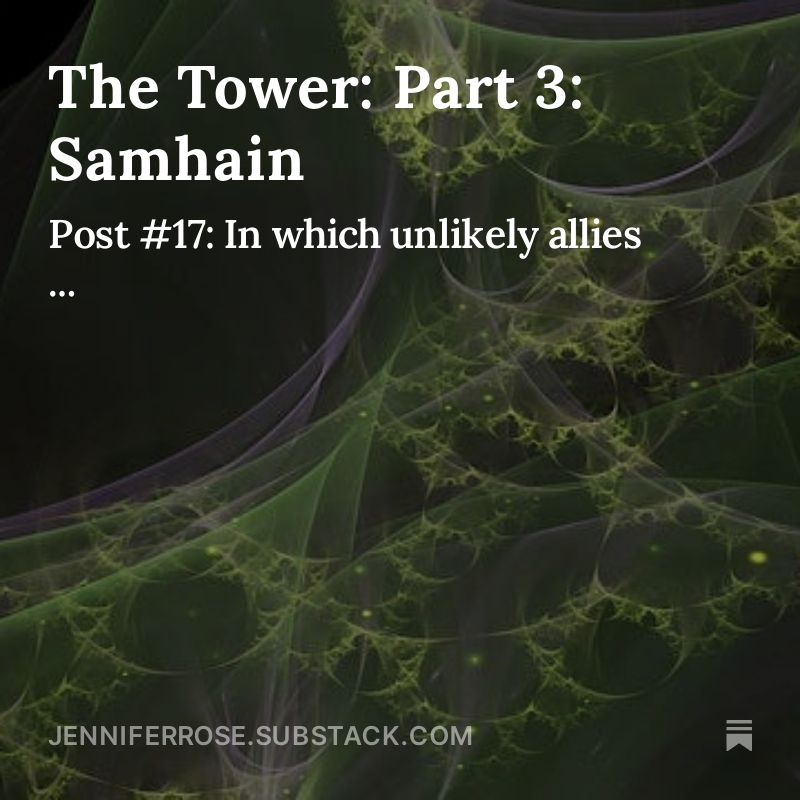
by Jenny Rose | Mar 16, 2024 | A Flourishing Woman, Mind
I’m still looking at my locked room, which I wrote about in my last post. I’ve had some interesting conversations about that post.
My emotional intelligence coach (who has now retired) used a phrase years ago when I was working formally with him: “I want everything you are and nothing you are not.”
It touched a deep, lifelong longing in me to be loved, accepted, seen in my entirety, though I know I would never allow myself to be seen in my entirety.
Through the years since, I’ve carried that phrase with me as I love and interact with those around me. Depending on my mood, it’s a ridiculous, impossible-to-achieve sentiment for any human being, cruel in its false hope, akin to rom coms. Or it’s something to aspire to, a reminder to be softer with my rigidities and expectations, quicker to forgive.
As I wrote a couple of weeks ago about locked internal rooms, it suddenly struck me in all the years I’ve been thinking about that phrase I never once said it to myself. I’ve been focused on my grief and shame about never being good enough to find that kind of love from another human being, or on my suspicion that none of us can honestly say that to one another. Not day after day in the long term.

Photo by Ryan Moreno on Unsplash
Over the last decade or so I’ve slowly, agonizingly, stopped hoping a prince on a white horse would show up who would love everything I am, or even love part of what I am unconditionally. (But, honestly, I wanted him to love everything!) I’ve turned more and more towards meeting my own needs for intimacy and connection, realizing the pain of disconnect is from within myself, not external. I want unconditional love. It’s not a feeling I have any power to make others feel.
Unconditional love towards myself, however, is a minute-by-minute challenge in which I have all the power.
Now, that’s a thought.
Extending unconditional love to myself is hard. I would a thousand times rather love someone else and dream of Mr. Right, except I know how that ends … and frankly, I’m bored with it. In fact, it occurred to me a couple of days ago I’m really not interested in Mr. Right anymore. Or Mr. Wrong. Or Mr. Anybody, romantically speaking. I’ve been smiling about that realization ever since. It’s oddly freeing. I watch women in my age cohort with their husbands/significant others where I work in a pool rehab center and think, “Better you than me, sister!” And smile some more. An enigmatic lifeguard smile (I hope).
The whole idea of romance doesn’t fascinate me anymore unless it’s strictly fantasy. Repairing and healing my relationship with myself is far more interesting. This refocus may be the greatest gift of menopause. I know some women grieve over it, but for me it’s freedom from what was frequently an overwhelming, stressful, and complicated biological imperative. Whew.
Is it possible for us to love ourselves unconditionally? Is it possible for me to do so?
What a question! A question leading straight back to my locked room.

Photo by John Salvino on Unsplash
I can’t love everything I am and nothing I’m not if I don’t know everything I am. If I don’t want to know. If I refuse to find out.
(Item: in my last Tarot spread for Imbolc I drew the Sea: Plumbing the Depths card.)
Now, like all of us, I have acceptable (to me) qualities and traits and unacceptable ones. I’m a mishmash of genetic inheritance and learned behavior. I’m a hot mess and I’m reasonably competent and effective. Sometimes all at the same time!
And I’m supposed to unconditionally love that?
Well, yes. That’s what unconditional love is, right?
I have a varicose vein popping up. I’m deeply insulted. WTF? I’m supposed to love that? I’m supposed to love the genetic inheritance/sun exposure/years of chronic pain that caused me to be sedentary/and other factors in the tired, bulging, blue-violet vein in my lower leg? What about the foot I’m pretty sure I’m developing a touch of arthritis in? What about my aging neck? What about my age-spotted hands (more sun exposure)?
And that’s just the beginning. I’m supposed to love the roots of my perfectionism, my speeding, my anxiety? Well, not the roots, but the child who was traumatized and developed those mechanisms to survive? (And did survive, let’s not forget.)
Romantically speaking, it’s easy to love white horses, roses, diamonds, champagne, sexy exotic vacations (none of which I find especially romantic, but you know what I mean!). I can love my competence, doggedness, creativity, integrity, ability to support others, and many other fine qualities (if I do say so myself). But the aches and pains, sleepless nights, endless loops of anxiety, tendency toward depression, rigidity, fawning, inept healthy boundaries and self-advocating – these are not lovable. These are a pain in the ass.
I am a frequent pain in my own ass.
Can anyone relate?
As for mistakes (I turned out the ladies’ locker room light while someone was still in there last week when we closed the pool!), shameful thoughts and feelings, dire deeds I wish I could forget, habitual catastrophizing, hurt I’ve inflicted on others, parenting mistakes, and a host of other miserable dead bodies in my locked room, unconditional love means I love those, too. It means I love my fallible, aging, flawed, exceedingly human self. All of it. All of me.

Photo by Cristian Newman on Unsplash
It makes me want to permanently lose the keys to my locked room.
Then there’s the “nothing I am not” part of the equation. Boundaries again. I’m so tired of working on boundaries. On the other hand, having no boundaries makes life not worth living, so I persevere. “Nothing I am not” includes what I was taught about myself and my role in my family as a child; false and limiting beliefs; my endlessly carping, nitpicking, internal critic; fear; despair; depression; anxiety; etc., etc. We carry so many burdens, and many of them never belonged to us in the first place. We took them upon ourselves, or someone forced them upon us, or we accepted them in order to ‘help’ someone else. Some are simply old coping mechanisms allowing us to survive our hard times but now outdated and useless.
At the end of all this, I wonder if our locked rooms are just another challenge in love. How much of ourselves do we shut away because we can’t love all of what we are, and we’re certain others couldn’t love us if they knew what was behind the door?
In the case of storing experience too horrific to manage, such as deep trauma, grief, or guilt, don’t those feelings need unconditional love most of all? The locked room itself, however we envision it, however we envision its door, is surely deserving of love too. It allows us to continue to function in life in spite of terrible experiences. It gives us respite, a way to pause, a way to give ourselves time to gain distance, wisdom, grow into new skills and learn how to help ourselves if and when we do crack the door open. It allows us to stay safe and sane.
For me, a choice to practice loving everything I am and nothing I’m not means I’ll be opening the door to my locked room and poking around in there. Now I’m curious. Could I at least consider loving what I find?
I’m considering it. Carefully.
Questions:
- What do you love about yourself?
- What do you have to do, be, or stop doing to earn your own love?
- Do you think more about finding someone to love you or practicing self-love?
- What if finding “true love” is impossible unless we love ourselves fully first?
Leave a comment below!
To read my fiction, serially published free every week, go here: 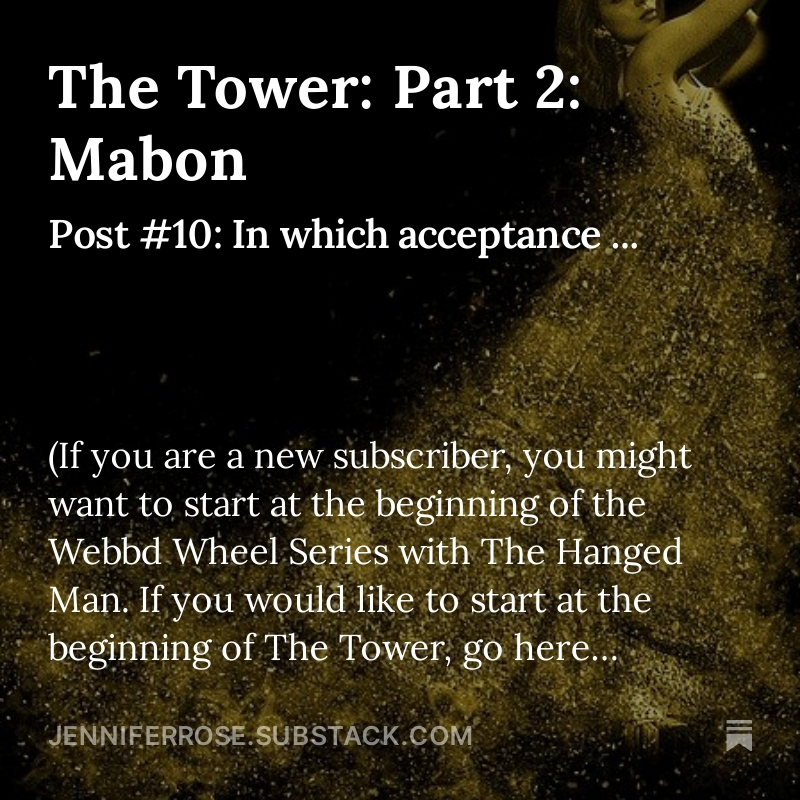
by Jenny Rose | Oct 7, 2023 | A Flourishing Woman, The Journey
This post grew out of two seeds. The first was a piece by a substacker I follow who heard a phrase on a podcast about pleasure in discipline. It struck her that she’s good at finding pleasure in discipline (think productivity), not so good at being disciplined about pleasure.
This struck me, too. I’m quite disciplined when it comes to achieving goals and being productive, but it never occurs to me to apply that same discipline to pleasure. What a thought! How lazy. How irresponsible …

By Veljo Milic on Unsplash
Amused at my internal horror, I played with this idea for a day or two. Discipline is like a doorway, I mused. One can walk through it and into pleasure. Being a strong adherent of Work Before Pleasure (even though I know the work never ends), the doorway metaphor seemed appropriate. For a minute. Until I realized standing in the doorway of discipline, unable to move forward into pleasure, is no good, either. And that’s mostly what I do.
Sigh.
Then, I did my Mabon Tarot spread. I do this at every turn of the wheel. Mabon is Fall Equinox. It came and went while I was wading through paperwork, documents, emails, insurance, retirement investments, and the business of changing banks, cards, automatic payments, and transfer networks.
Did I mention paperwork?
Anyway, I did eventually get to pulling cards about a week after Mabon. The last card of the spread, the “overall outcome” card, happened to be the 9 of Stones (my deck), or the 9 of Pentacles (classic deck). In my deck, this card is the card of tradition, signifying reverence for past wisdom and sacrifice, and ancestral memory.
It stopped me in my tracks. Ever since my mother died in August (hence the endless paperwork), I’ve been preoccupied with family, past and present, living and dead, known and (mostly) unknown. Managing my inheritance has been fraught with guilt, shame, anguished memories, bewildered pain.
I don’t feel reverence. Whatever I feel, it’s not that. (Another thing to feel guilty about.) Whatever happened in my past context of family, I’ve found no wisdom in it. Plenty of sacrifice, though, mostly of and by me.
In the five days since I turned this card over, I’ve been thinking about it. It’s the traditional time of year for many cultures to remember ancestors, the time when the veil between the worlds grows thin, the time when the trees release their leaves to decay and sleep before the next season of growth.

Photo by fancycrave on Unsplash
The discipline of pleasure. And the pleasure of discipline.
Reverence for past wisdom and sacrifice; ancestral memory.
I suddenly remembered an old story I used to tell during this time of year, “The Corpse Bride.” It’s a story out of Jewish tradition. A corpse bride, still wearing her wedding finery, mourns her violent death as she was on her way to her wedding. She grieves for her lost opportunities. A living bride comforts her, vowing to fully experience all that the corpse bride dreamed of and lost. The corpse bride is then able to lie back in her grave and rest in peace.
These pieces seemed to answer a question I haven’t consciously asked. Discipline. Pleasure. Unquiet ancestors. Lost opportunities.
How do we connect with our ancestors in a healthy way? We’re only just beginning to understand epigenetics and the ways in which we’re linked to the generations who came before us. I know something about my DNA, but almost nothing about ancestors. When I think of ancestors, I think of a dignified group of people, wise, healthy, connected, at peace. When I think of my family, I think of rejection, dysfunction, and abandonment. I hardly knew my family, even the ones living during my lifetime. What I mostly knew was I didn’t belong, though I was a biological child of the people I called Mom and Dad.
I feel no connection to ancestors. My unconscious assumption is they wouldn’t want me any more than the family I knew did.
However. The fact is I do have blood ties and a biological family tree, as we all do. I have inherited certain characteristics, behaviors, weaknesses, strengths, and wounds through epigenetics as well as genetics and environmental factors. I am now a twig at the end of a branch on the family tree. Neither of my sons have children. I have no daughter. My two cousins are also childless, as is my brother. I am the last female in the last generation of my direct maternal line.
Me. The highly sensitive, passionate, sensual, creative, noncompliant one nobody wanted!
I dealt several Tarot cards of healing and recovery in that Mabon spread. Perhaps they’re not solely about my healing. In conjunction with the season and this powerful card of ancestry, perhaps I have an opportunity to heal myself and comfort? give peace to? palliate? propitiate? the women who came before me, the women who gave me life.
Whatever came before, I’m here now. I breathe. My heart beats. Half the family resources are in my hands. I have the power to make choices. I choose to continue forward into generosity, healing, and joy. I don’t have ancestral traditions or maps. No one ever gave me a map, because they didn’t know the way themselves. Maybe they didn’t want to go in that direction; maybe they stopped looking for the path. It doesn’t matter now.
What matters now is to live … because they can’t. Like the corpse bride, their earthly opportunities are lost. Maybe from the very beginning I was the one with the potential to bring my female ancestors peace at last, not because I complied with their oppression, but because I refused it. Maybe it’s my wisdom that’s needed, the map in my pocket we all must follow.
The women of my family taught me some of the pleasures of discipline. Perhaps I must teach them about the discipline of pleasure, of joy. Which means I must learn it myself first.
I swam yesterday. I’m required to train weekly for my lifeguard position, but that’s only a good excuse. I swim for pure pleasure. I relished every sensual detail, every rhythmic breath, every stretch and flex of my muscles, the silk of the water. I relished the hot shower afterwards, the long drink of water I took, my clean hair and warm and relaxed body. Because they never did, even when alive. Because they never can.

Yellow Boots
This Saturday morning I ran to the store. I took a deep lungful of the grey, humid air, heavy with the promise of coming rain. I savored it. I chatted with the cashier. I bought myself a luxurious dark chocolate bar. I deliberately splashed through a puddle in the parking lot with my bright yellow duckie boots. I smiled at strangers. I drove home with the window open and the damp air stirring my hair. Because they never did these things. (Well, maybe the chocolate. Mom did like chocolate.) Because now they never can.
I sit here on my couch with the cats, the laptop on my lap. I’m burning a scented candle, surrounded by a couple of sleeveless summer shirts I just bought on sale, my journal, lists, notes, the mail. I’m at peace. I don’t have pain. (Mom always had pain.) I’m content. I have friends I love and who love me. Life is good, filled with projects and plans. In a few minutes I’ll get up, put some laundry in, wash the dishes, stand in the doorway and look at the sky, feel the air stirring as the storm approaches. I won’t do these things because I’m disciplined and productive, or because I must, but because I can. I want to. I choose to. These are the small tasks of my life, and I love my life.
All these I’ll do for myself, and also for them, my ancestors, the women who came before me, my blood, my bone, the wombs who gave me life. Because they can’t.
They’re gone. (May they rest in peace.)
But I’m still here.
Questions:
- What does the word ‘ancestor’ mean to you? Do you connect it with a real person in your life?
- Are you prepared to be an ancestor? What wisdom would you pass on to younger generations?
- Do you feel connected to the generations of family before you?
- Would you like to be more deeply connected to living family members? What’s in your way?
Leave a comment below!
To read my fiction, serially published free every week, go here: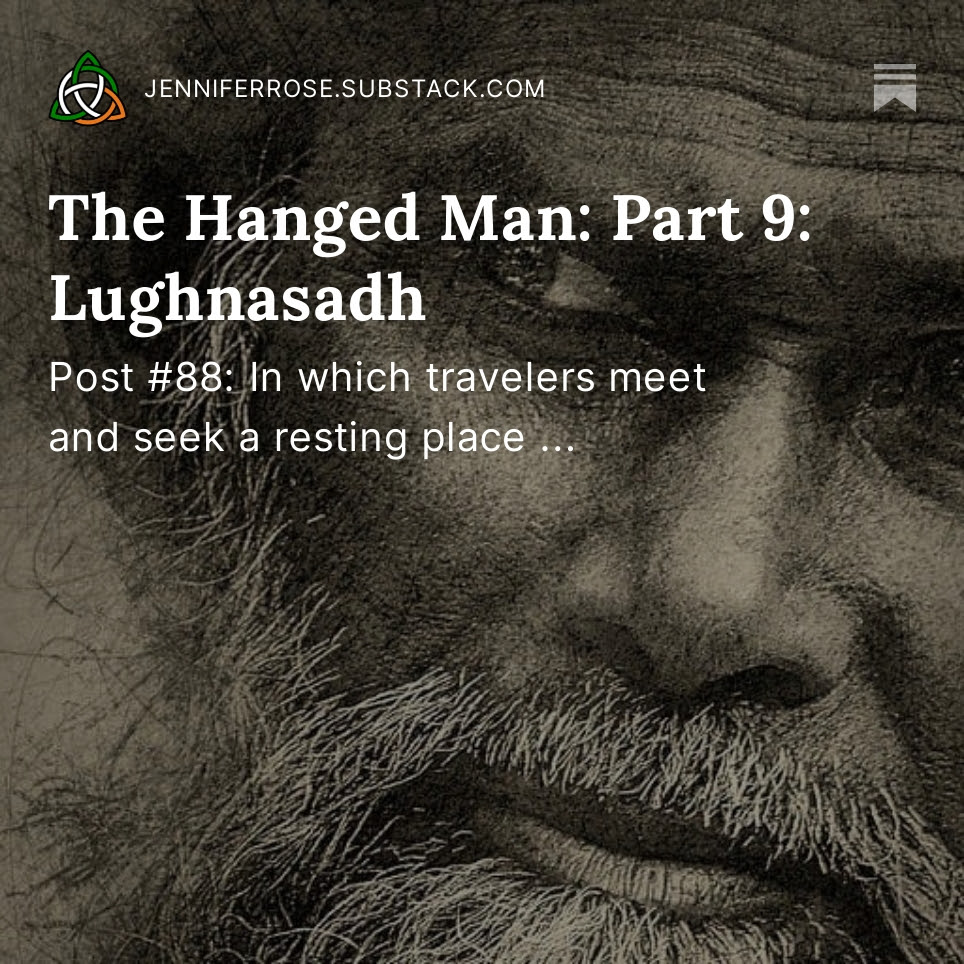
by Jenny Rose | Jul 22, 2023 | Authenticity, Emotional Intelligence, Needs
I read every day in Substack. Right now, AI is a main topic of conversation. I’ve read about the science behind it, opinions about where it will lead us ranging from the extermination of humans to a leap forward in positive ways we can’t imagine. Most of all, I read about the ways AI is impacting creative work and creators.
I don’t have a firm opinion about AI myself. I’m wary of predictions, interested in the science, and thoughts and experiences of writers I respect who have used AI-generated art, music, and writing. I’m especially interested in those who have interacted with AI as a resource for answering questions or developing new perspectives.
In the last couple of months, I read about an app called Betwixt. On principle, I hate apps and rarely use them. They increase my vulnerability online, provide more personal data to mine, clutter up my phone and laptop, and frequently feel like bells and whistles I don’t need. On the other hand, I admit they can be useful.

Photo by Dan Gold on Unsplash
Betwixt was briefly described as “an interactive story” of a journey into our own mind. The user co-creates their journey via questions and answers. It combines “story, science, and play,” enhanced by sound. It was developed by a team, including writers, game designers, a cognitive hypnotherapist, mental health specialists, and (get this) an “AI creativity scholar.”
I was intrigued, in spite of myself. In fact, I was surprised by how much I wanted to try it. I hesitated, feeling vaguely ridiculous. I did some research, discovered it was free, read some reviews, and decided I had nothing to lose. I could always just uninstall the app if I didn’t like it.
Most of us have probably encountered AI in online chatting to address problems or troubleshoot. I was on the Red Cross site last week chatting with what was clearly AI. It kept typing cheerful, excessively polite, Little-Mary-Sunshine things while I was trying to cut to the problem and solution part. I was annoyed. I’m polite and cooperative with people, but I can’t see much point in exchanging pleasantries with AI.
I had never interacted with any of the more sophisticated programs before using Betwixt.
Upon opening Betwixt, one enters into a story. A setting is provided; the user chooses details to fill in. The user is introduced to a Voice. The Voice asks questions, good questions. The user is provided with different choices for answering the questions, along with a frequent option to type in his/her own answer. The audio is rich and textured. The program is not illustrated, at least not so far. I like this; I like using my own imagination to fill in details. I don’t need more than audio.
The questions, along with possible answers to choose from, are quite good, even challenging. I don’t speed through it. I stop and think about what is true for me. Sometimes I don’t have a choice to answer in my own words and am forced to choose among the provided answers, whether they are good fits or not. This irritates me. As the story unfolds, steered by my answers to questions, I enter new internal territory. The closest answer rather than the exact answer takes me to places I normally wouldn’t go, giving me slightly different (and unfamiliar) views of myself and my behavior.
The app is divided into chapters, each a few minutes long. At the end of each chapter the user receives a summary and accumulates strengths, skills, and self-definitions to take forward. A brief explanation of the science and psychology underlying each completed chapter is also provided. There are options for upgrading to paid tiers.

Photo by Ryan Moreno on Unsplash
I notice an astonishing thing. I answer questions the Voice asks me with a depth and honesty I have never shared with a human being. I’ve believed I’ve been totally honest with people I trust before, but interacting with The Voice accessed a level in my mind I didn’t know was there. It was like those dreams in which the dreamer discovers a whole other room or wing in a house they weren’t aware of. As the journey begins, when the Voice is introduced, the user has an opportunity to ask the Voice questions, like its name and what it does when we’re not interacting. (It asked me my name.) I was astounded to find myself incurious; more than that, I don’t want to know. It’s an AI. I don’t have to do the emotional labor of building healthy connection. I’m not making a friend. I’m using a tool.
The last time I used the app, the storyline encouraged a moment of empathy for the AI. I felt a flash of savage anger and resistance.
I was entirely astounded by this very uncharacteristic knee-jerk response. I finished the chapter, closed the app, put the phone down, and did dishes while I thought about what had just happened. It didn’t take long to uncover it.
My experience of empathy is one of the core pieces of my life. Empathy can be a positive trait, but the empathic experience is frequently an overwhelming, utterly exhausting business. The only time I can truly rest, ground in myself, and be authentic is when I’m alone. But I’m a human being, a social animal. I need other people to interact with. Yet when I’m interacting with others, my empathy demands they take center stage with their needs, their feelings, their distress, their stories. I’m incapable (so far) of fully participating in my own experience because I’m too busy caregiving and being empathic. When I do ask for support or need to discharge feelings, I writhe over my selfishness and berate myself for it afterwards, feeling ashamed and angry for allowing myself to be vulnerable, for “burdening” those around me.

Photo by Cristian Newman on Unsplash
I only want to give. I never want to take.
Since I learned emotional intelligence, I have reluctantly realized we need someone to interact with. Journaling, private physical and spiritual practices, and, in my case, writing, is not enough. At times we need someone to listen. We need someone to react, even if it’s just making encouraging, I’m-listening noises. We need someone to receive us.
I hate this reality. I don’t want to need anything from anyone, ever. I learned as a child such a need puts one in dreadful danger of abandonment, betrayal, and emotional annihilation that feels like death.
This is the first time I have interacted in a therapeutic context with something not human. The Voice reads what I type, responds, asks questions, and creates a story with me, but has no existence outside the app. I’m free of empathy, of caregiving, of the need to labor emotionally. I feel no responsibility to anyone but myself. I’m using it. It’s there for me, not the other way around.
The relief is indescribable.
So, when the story asks me to be empathic for the Voice, I want to throw the phone across the room. Animals, plants, people — even inanimate objects and spaces – receive all the love and care I’m capable of. This is the first time in nearly 60 years I’ve run across something that interacts like a human but is not a living being in the way I think of living beings. The value of the tool lies in my ability to be completely free and honest because there’s no one to take care of besides myself.
It makes me realize my context as a human on a planet filled with life is my entire identity. If I were magically transported to the world of Betwixt, with only the Voice to interact with, I have no idea who I would be or what I would say or do.
I have not finished my journey with this app. There’s more to experience, share, and think about. I’ll be back next time with more on my exploration of Betwixt.
(I’m not earning a commission from Betwixt, in case you were wondering!)
Questions:
- Until now, emotional intelligence training was the most valuable therapeutic context I’ve ever engaged with. What kinds of therapy have you explored? What did you find most helpful?
- What are your thoughts and feelings about AI?
- What kind of potential do you think, fear, or hope AI might have as a creative tool?
Leave a comment below!
To read my fiction, serially published free every week, go here: 